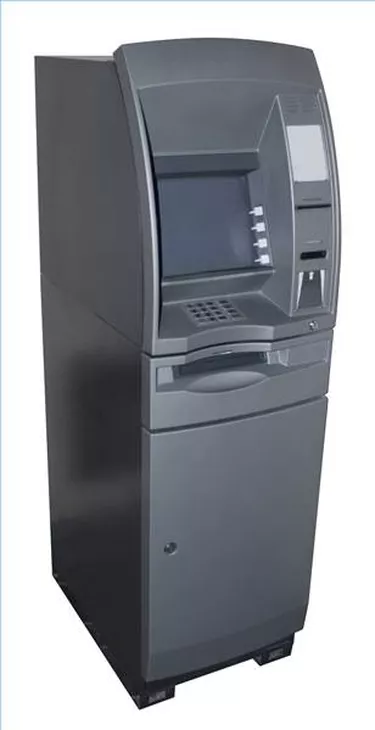
If you have ever faced an unexpected need for cash, then you have probably accessed an ATM machine. These machines are found in many retail locations from gas stations to restaurants to grocery stores. Are there any advantages to using an ATM, or would you be better off carrying your own cash to make your purchases?
History
Video of the Day
The first ATM, or automatic teller machine, was invented and patented in 1939 by Luther Simjian. This model was an unsuccessful prototype, but it led the way to the first modern ATM, created by James Goodfellow in 1966. Because the ability to connect to the bank via computer was not yet available, access to these machines was only given to a select few bank customers. The first ATM to use a card with a magnetic strip was patented in 1977. Even though the machines existed this early, it was not until the end of the 1980s that ATMs became commonplace in modern banking.
Video of the Day
Advantages
The main advantage of using an ATM is the fact that you can have access to the cash in your bank account whenever you need it. If, for instance, you are at a store that does not take checks or credit cards but it has an ATM, you can withdraw the money for your purchase. This also means you can travel anywhere without cash. If the location has an ATM and you have your ATM card, you can access your money instantly.
Warning
As with any piece of modern technology, you do need to use some caution when using an ATM. Identity thieves have recently been using discarded ATM receipts to get the bank account numbers of unsuspecting consumers. Consumers who have an ATM card are assigned a PIN to use when accessing their funds. Thieves sometimes stand close behind an ATM user to get this PIN, and then steal her purse with the ATM card in it to steal money from the account. Always use caution when accessing an ATM to ensure no one is watching you.
Cost
Before you use an ATM, make sure you know the cost. Most banks charge a fee for withdrawals from ATMs that are not in their network. If the bank has a large network, you can probably find an ATM that you can use for free, but smaller banks, especially local banks, may not have many ATMs, so you will be paying a few dollars every time you make a withdrawal. If you have an emergency, this is worthwhile; if the fees are high, you will want to avoid frequent use of the ATM because these small fees add up quickly.
Expert Insight
Today's ATMs are not just machines you can use to access cash. On some ATMs you can transfer funds between accounts, buy stocks, check account balances and even buy stamps. All of these features can be accessed with one debit card or credit card and a PIN number. If you take measures to protect your PIN and account information, having access to an ATM is very convenient and makes life's little emergencies far less challenging, but be sure you know the fees associated with ATM use before you use one.